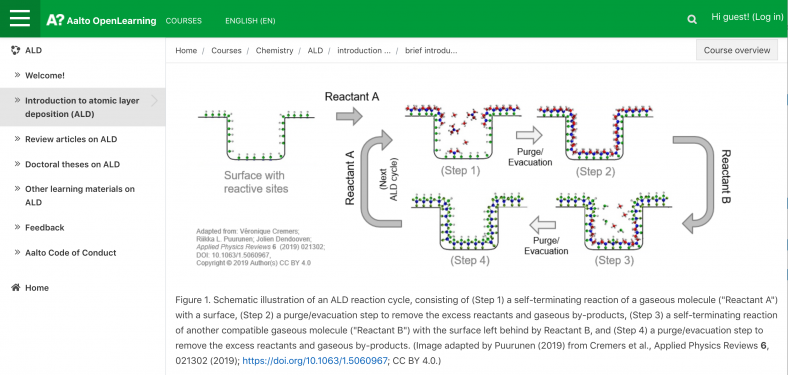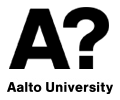Happy 45th anniversary, ALD in Finland – Aalto ALD OpenLearning opens

Exactly forty-five years ago, on November 29, 1974, the first patent on Atomic Layer Epitaxy (FIN 52359) was filed by Suntola and Antson.
Today, the Aalto ALD OpenLearning site is opened for public. You can access it via the general link https://openlearning.aalto.fi/ and the direct link https://openlearning.aalto.fi/course/view.php?id=100. Above is example of the current site contents, including a new schematic illustration of the ALD process, adapted from Applied Physics Reviews 6 (2019) 021302; https://doi.org/10.1063/1.5060967.
Also today, at Aalto University, we meet at: November Networking – ALD at Aalto University event. We have 63 participants registered, with group presentations, company presentations, 2-min poster pitch talks, and invited talk by Prof. Ruud van Ommen; see more at https://blogs.aalto.fi/catprofopen/ald-networking-nov-2019/.
Happy 45th anniversary, atomic layer deposition (ALD) in Finland!
Espoo, Finland,
November 29, 2019,
Riikka Puurunen
—
Other posts on the #FinALD45 topic:
- Erwin Kessels, Atomic Limits blog, November 28, 2019, “Atomic layer deposition turns 45! – The history of ALD in a timeline and an animated version of the ALD periodic table” https://www.atomiclimits.com/2019/11/28/atomic-layer-deposition-turns-45-the-history-of-ald-in-a-timeline-and-an-animated-version-of-the-ald-periodic-table/
- Jonas Sundqvist, BALD Engineering Blog, November 28, 2019, “45 years since the first patent on Atomic Layer Deposition by Tuomo Suntola and Jorma Antson from Finland” http://www.blog.baldengineering.com/2019/11/45-years-since-first-patent-on-atomic.html
- Riikka Puurunen, ALD History Blog, November 29, 2019, “Happy 45th anniversary, ALD in Finland – Aalto ALD OpenLearning platform opens”, http://aldhistory.blogspot.com/2019/11/happy-45th-anniversary-fin-ald-aaltoaldopenlearning-opens.html (“sister” to the current post)

